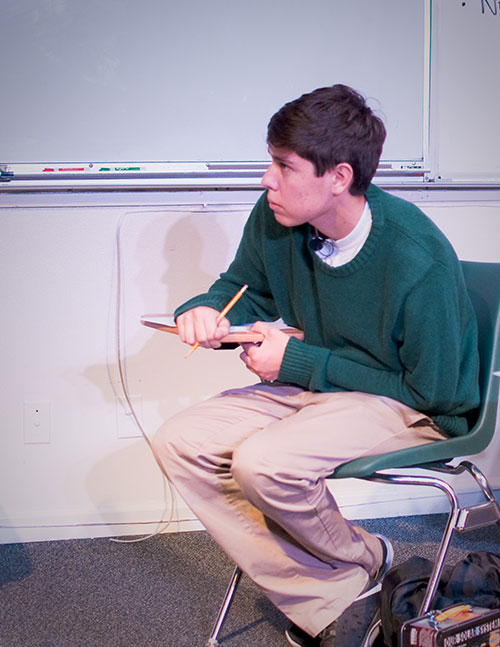

Most of us know the plot of “The Breakfast Club”. Five students find themselves in detention together on a Saturday where they are asked to write a 1,000 word essay on who they think they are. While not complete strangers to one another, each is from a different social circle within their school. The story lets people find at least a part of themselves in a brain, an athlete, a ‘basket case’, a princess or a criminal.
Last week director Mary Carroll and students of Saint Lawrence Academy brought to life the coming-of-age film from the 1980s, and its message that while we may feel different from others we share the same experiences.
“A movie/play like “The Breakfast Club” helps teenagers to know that they are not alone in [their struggles],” Carroll wrote in the play’s program.
Just like the film, while these students may know each other, they superficially each have a specific group of friends. But by working together, they were able to get to know one another and become friends in the end.
The film was rated R due to language and content and most of it was kept in the stage performance in an attempt to stay close to the screenplay and message of the film. In addition to the live performance, pre-recorded video and music mixed in throughout the play added substance for scenes outside of the classroom setting.
The play started with a video of all the students making their way to their dreaded detention. Each character’s story is different from the next, but the audience becomes aware of the characters’ relationships with their parents, which becomes important later.
From the very beginning the students locked down the characters’ personalities and really grasped what John Hughes portrayed in his film – five very different teenagers in terms of interests and cliques, although all very similar at the core.
While in detention, the characters bare their souls to one another; effectively portraying the film’s message while embodying the stereotypes and emotions of each character. And that is what the audience was able to relate to. Each of us has at least one of those characters in us. Being classified as a jock or a nerd or whatever it may be is something that was and will always be, ingrained in us as high school students; and we never fully lose that first sense of who we are.

